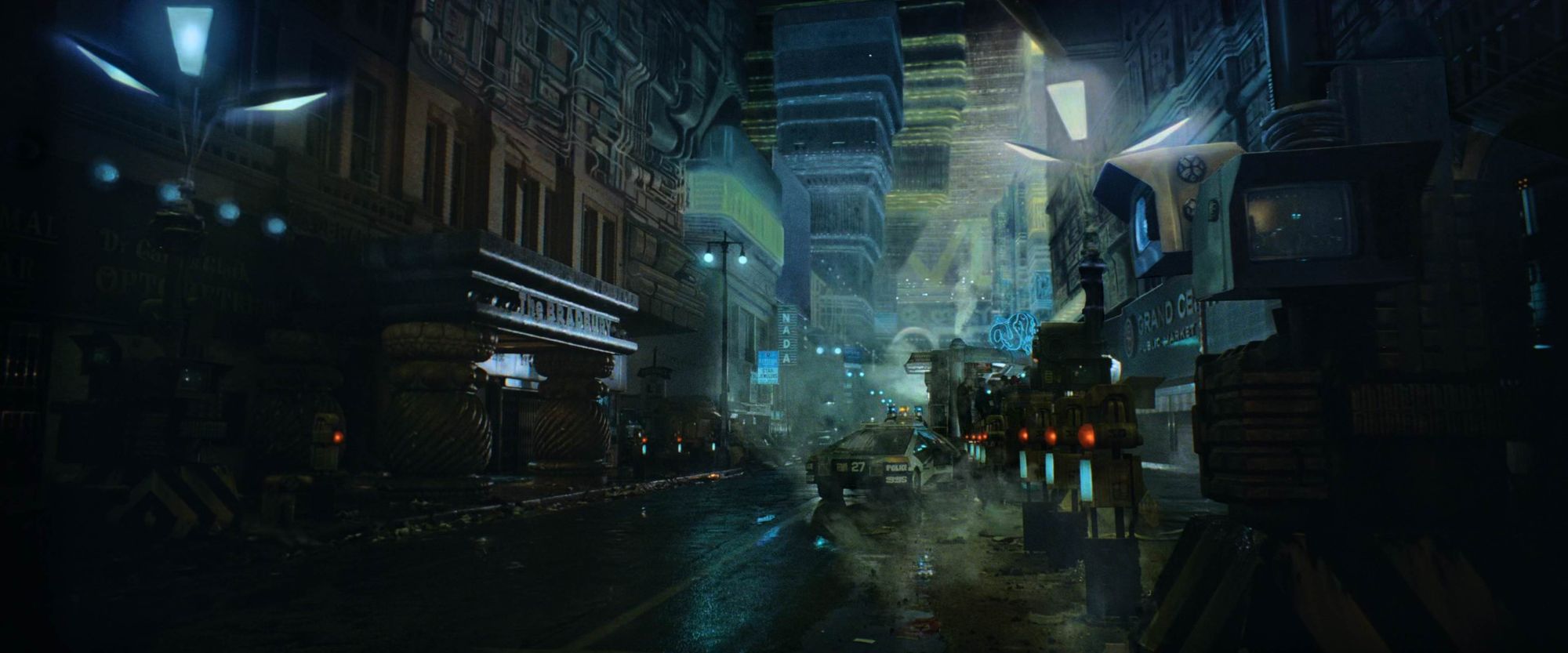Blade Runner\s*(2049)?

Before yesterday (Thursday, 8th of February 2018), I had never seen Blade Runner. It was a film people constantly referenced, it's a film of which I had seen and heard of it's influence. But it wasn't one of those 'classic' films which is readily presented to a regular audience (e.g. on TV), so it was always going to be something I had to seek out on the back of recommendations if I were to see it. This is especially true given the film is about 10 years older than I am.

With the release of Blade Runner 2049 and the good reviews that received, I finally decided I needed to watch Blade Runner in preparation for 2049. So I bought the blu-ray released... and then didn't watch it. I'm not entirely sure why, but I ended up then waiting for the blu-ray release of 2049, which I received this week.
With that, I have some thoughts on Blade Runner, although more about 2049 and how I think it holds up as a sequel.
First of all, I really enjoyed both films, they're definitely among my all time favourite films.
There's nothing I can say about the original that hasn't already been said many times over in the decades since its release, but I do think I have maybe an uncommon perspective given how late I watched Blade Runner for the first time and how soon after I watched its sequel after that first viewing.

Blade Runner 2049 is one of the most faithful film sequels I have ever seen. It's faithful to the original vision, faithful to the style, direction and pacing, key themes and cinematography. Crucially, however - it's not a retread, it's not just an homage to the original it's a true continuation.
It explores and expands on what the original began in almost all ways, it recognises that much of the ambiguity of the original wasn't necessarily there to be cleared up, but to keep on providing questions. 2049 feels like it retroactively improves the original by giving more weight to plot, which is perhaps one of the best markers of success for a film sequel.

There's some legitimate criticism out there for 2049, however. It sometimes (update: maybe one or two scenes in the whole film) goes off and spends a bit too much time peering into it's own arsehole and as such the film has sections that should have probably been cut out.
Even if those scenes weren't necessary and probably made the film less accessible than it needed to be, there was something cool in every scene. Be it the soundtrack, the visuals or some cool world building, there was always something I'm glad I experienced.. even if many editors would have cut them out.
But I personally don't knock the film for any of this. I think such indulgence can be good and I think it's great here.
Both of these films were made by people who understand the potential of cinema. Film isn't just an iteration on theatre with fancier sets and effects, it's so much more (and many will argue less in some areas). The toolbox available to tell a story implicitly through carefully crafted scenes, appropriately aligned and sequenced, is utilised in these films in ways few films even begin to understand, let alone approach.
The themes in these films aren't new or terribly complex, they're quite fundamental questions asked and explored throughout human history, but in both Blade Runner and even more so in Blade Runner 2049, the ability to linger and employ a kind of visual meditation to get to these questions brings a different kind of depth and perspective that does feel unique to film.

Member discussion